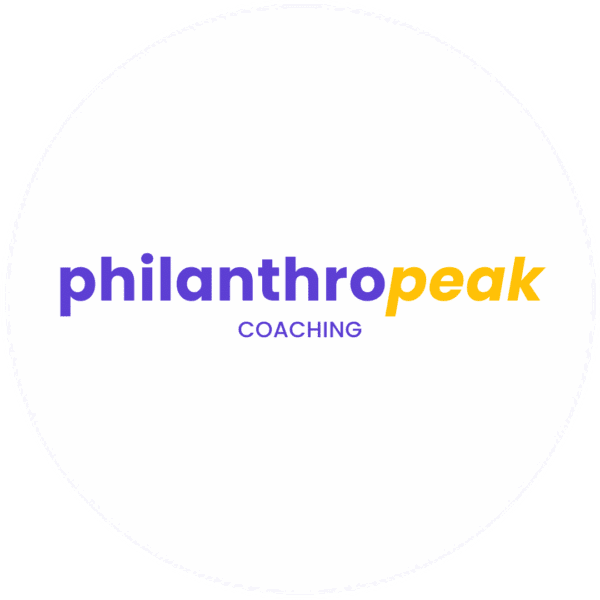Understanding The Impact of ADHD on Communication Styles and How to Adapt Effectively
Table of Contents
ToggleADHD, or Attention Deficit Hyperactivity Disorder, significantly influences how individuals communicate. Understanding the unique challenges faced by those with ADHD can help us adapt our communication styles to foster better interactions. This article explores the various ways ADHD affects communication and offers practical strategies for improving conversations with those who have the condition.
Key Takeaways
- ADHD symptoms like inattention can lead to missed details in conversations.
- Hyperactivity may cause restlessness during discussions, making it hard to stay engaged.
- Impulsivity can result in interrupting others, affecting the flow of dialogue.
- Creating supportive environments helps individuals with ADHD communicate more effectively.
- Using technology and clear communication strategies can enhance understanding in conversations.
Exploring the Core Symptoms of ADHD and Their Influence on Communication
ADHD, or Attention-Deficit/Hyperactivity Disorder, is characterised by three main symptoms: inattention, hyperactivity, and impulsivity. These symptoms can significantly affect how individuals communicate with others.
Inattention and Its Communication Challenges
Inattention can make it hard for adults with ADHD to focus during conversations. They might miss important details or struggle to follow the main point of a discussion. This can lead to misunderstandings and frustration for both parties. Here are some common challenges:
- Difficulty remembering names or details from conversations.
- Trouble staying engaged when distractions are present.
- Missing non-verbal cues, such as facial expressions or gestures.
Hyperactivity's Role in Conversational Engagement
While hyperactivity in adults may not look like it does in children, it can still impact communication. Adults may feel restless or have racing thoughts, making it hard to stay present in discussions. This can result in:
- A tendency to interrupt others.
- Difficulty waiting for their turn to speak.
- A perception of disinterest, even when they are engaged.
Impulsivity and Its Impact on Dialogue
Impulsivity can lead to blurting out responses or interrupting others, which can disrupt the flow of conversation. This behaviour is not intentional but stems from a challenge in controlling immediate reactions. Some effects include:
- Misunderstandings due to incomplete thoughts.
- Frustration from others who feel interrupted.
- Difficulty in maintaining a structured dialogue.
Understanding these symptoms is crucial for improving communication. By recognising how ADHD affects interactions, individuals can develop strategies to enhance their conversational skills and foster better relationships.
Overall, the symptoms of ADHD can create unique challenges in communication, but with awareness and practise, individuals can learn to adapt and improve their interactions.
The Dual Challenge: Navigating ADHD Symptoms and Effective Communication
Balancing Internal Experiences with External Perceptions
Managing ADHD symptoms while trying to communicate effectively can feel like a balancing act. Individuals with ADHD often face the challenge of juggling their internal thoughts and feelings with how others perceive their communication. This can lead to misunderstandings, especially when symptoms like inattention or impulsivity come into play. Here are some key points to consider:
- Be clear and direct: Use simple and straightforward communication, as a person with ADHD might find it hard to understand ambiguous or implied meanings.
- Practise patience: Allow time for responses and avoid interrupting, as this can help create a more supportive environment.
- Encourage open dialogue: Foster an atmosphere where individuals feel comfortable discussing their communication needs.
Managing Misunderstandings in Conversations
Misunderstandings can escalate quickly when ADHD symptoms interfere with communication. Here are some strategies to help manage these situations:
- Clarify intentions: If something is misunderstood, take a moment to clarify what was meant.
- Use active listening: Show engagement by nodding and summarising what the other person has said.
- Avoid assumptions: Don’t assume that the other person understands your point of view without confirmation.
Strategies for Maintaining Focus During Interactions
Maintaining focus during conversations can be particularly challenging for adults with ADHD. Here are some practical strategies:
- Limit distractions: Choose a quiet environment for important discussions.
- Take breaks: If a conversation is lengthy, suggest short breaks to help reset focus.
- Utilise technology: Use reminders or notes to keep track of key points during discussions.
Creating a supportive environment is essential for effective communication. By understanding the unique challenges faced by individuals with ADHD, we can foster better interactions and strengthen relationships.
Practical Strategies for Enhancing Communication Skills in Adults with ADHD

Effective communication can be a challenge for adults with ADHD, but there are practical strategies that can help improve these skills. By implementing these techniques, individuals can enhance their interactions and build stronger relationships.
Building Self-Awareness in Communication Patterns
- Reflect on your communication style: Take time to think about how ADHD affects your conversations. Recognising your patterns can help you identify when you might be interrupting or losing focus.
- Keep a journal: Write down instances where communication felt difficult. This can help you spot trends and plan for future conversations.
- Seek feedback: Ask trusted friends or family members for their observations on your communication style.
Active Listening Techniques for Better Engagement
Active listening is crucial for effective communication. Here are some tips to enhance this skill:
- Focus on the speaker: Make eye contact and eliminate distractions to give your full attention.
- Show you are listening: Nod and smile to encourage the speaker, and maintain an open posture.
- Provide feedback: Use phrases like "What I’m hearing is…" to confirm your understanding.
- Defer judgement: Allow the speaker to finish their thoughts before responding.
Utilising Technology to Aid Communication
Technology can be a valuable tool for improving communication skills. Consider these options:
- Use calendar apps: Tools like Google Calendar can help you remember important dates and appointments, reducing anxiety about forgetting.
- Note-taking apps: Applications such as Evernote can assist in keeping track of key points during conversations.
- Reminder tools: Set reminders on your phone to help you stay on track during discussions.
By integrating these strategies into daily life, adults with ADHD can significantly improve their communication skills, leading to more fulfilling interactions. Remember, progress is more important than perfection!
Creating Supportive Environments for Individuals with ADHD

For individuals with ADHD, a supportive environment can greatly enhance their communication abilities. Whether at home, work, or among friends, the right atmosphere can lead to better interactions and stronger relationships. Here are some practical tips for friends, family, and coworkers to help communicate effectively with someone who has ADHD:
Tips for Friends and Family
- Be patient: Understand that communication may take longer. Allow the person with ADHD to express themselves without rushing or interrupting.
- Use clear language: Keep instructions simple and direct. Avoid overwhelming them with too much information at once.
- Practise active listening: Show engagement by nodding, maintaining eye contact, and not interrupting while they speak.
- Offer gentle reminders: Since memory can be a challenge, kindly remind them of upcoming events or discussions.
- Encourage open conversations: Create a space where they feel comfortable discussing their needs and strategies for better communication.
Tips for Coworkers
- Foster an inclusive workspace: Promote a culture that respects and supports diversity, including neurodiversity.
- Adapt communication methods: Use written forms of communication, like emails, which can be easier for someone with ADHD to process.
- Schedule regular check-ins: These can provide opportunities for focused discussions about work expectations and feedback.
- Prioritise organisation: Help create structured systems or suggest tools that can ease common ADHD-related challenges at work.
Creating a supportive environment is essential for individuals with ADHD to thrive. By implementing these strategies, we can help them navigate communication challenges more effectively.
Conclusion
By understanding and adapting our communication styles, we can create environments that not only support individuals with ADHD but also enhance their ability to connect with others. Together, we can foster understanding and improve interactions.
Comparing Traditional and ADHD-Friendly Communication Techniques
Listening Approaches: Continuous Attention vs. Breaks
In traditional communication, there is often an expectation of continuous attention, which can be challenging for individuals with ADHD. ADHD-friendly techniques allow for breaks and the use of visual aids or written summaries to enhance understanding.
Speaking Styles: Structured Exchanges vs. Monologues
Typically, conversations may involve long, uninterrupted monologues. However, for those with ADHD, short and structured exchanges with frequent checks for understanding can be more effective. This approach helps in maintaining engagement and clarity.
Organising Thoughts: Visual Aids and Outlines
The traditional expectation is to organise thoughts rapidly and coherently. In contrast, using outlines or visual organisers before speaking can significantly aid individuals with ADHD in expressing their ideas clearly. This method reduces the pressure to think quickly and allows for better articulation of thoughts.
| Technique | Traditional Approach | ADHD-Friendly Approach |
|---|---|---|
| Listening | Expecting continuous attention; no aids used. | Allowing breaks; using visual aids or summaries. |
| Speaking | Long, uninterrupted monologues without checks. | Short, structured exchanges with frequent checks. |
| Organising Thoughts | Expectation to organise thoughts rapidly. | Using outlines or visual organisers before speaking. |
| Following Up | Assumes retention of information. | Using reminders via apps or calendars. |
Understanding these differences is crucial for fostering effective communication. By adapting our techniques, we can create a more inclusive environment for individuals with ADHD, enhancing their ability to engage and express themselves effectively.
Understanding the Role of Memory in ADHD Communication Challenges

Memory issues can significantly affect how adults with ADHD communicate. These challenges are not just about forgetting names or dates; they often involve difficulties in retaining and recalling details from conversations.
Working Memory Deficits and Their Effects
Individuals with ADHD often experience working memory deficits, which means they may struggle to hold onto information long enough to use it effectively. This can lead to:
- Missing key points during discussions
- Repeating conversations without realising it
- Giving the impression of not paying attention
Strategies for Improving Memory Retention
To enhance memory retention, adults with ADHD can adopt several strategies:
- Use reminders: Setting alarms or using apps can help keep track of important tasks and appointments.
- Take notes: Writing down key points during conversations can aid in recalling details later.
- Practise summarising: After a discussion, summarising what was said can reinforce memory retention.
The Importance of Reminders and Note-Taking
Utilising reminders and note-taking is crucial for individuals with ADHD. These tools can help bridge the gap caused by memory challenges, ensuring that important information is not lost.
Effective communication is not just about speaking; it’s also about remembering what has been said.
In conclusion, understanding the role of memory in ADHD communication challenges is essential for fostering better interactions. By implementing practical strategies, individuals can improve their communication skills and enhance their relationships.
Addressing Emotional Impulsivity in Conversations

Managing Emotional Outbursts Effectively
Emotional impulsivity can lead to sudden outbursts during conversations, which may disrupt communication. It’s essential to recognise these moments and manage them effectively. Here are some strategies to consider:
- Pause before responding: Take a moment to breathe and collect your thoughts before reacting.
- Practise active listening: Focus on what the other person is saying rather than preparing your response.
- Use calming techniques: Techniques such as deep breathing or counting to ten can help regulate emotions.
Mindfulness Practises for Calmer Interactions
Incorporating mindfulness into your daily routine can significantly improve your emotional regulation. Here are some practises to try:
- Meditation: Spend a few minutes each day in quiet reflexion to enhance your focus and calm your mind.
- Journaling: Write down your thoughts and feelings to process emotions before discussing them with others.
- Grounding exercises: Engage in activities that connect you to the present moment, such as focusing on your breath or the sensations in your body.
Encouraging Positive Communication Approaches
To foster better communication, consider these positive approaches:
- Use “I” statements: Express your feelings without blaming others, e.g., “I feel upset when…” instead of “You always make me upset.”
- Set clear intentions: Before a conversation, clarify what you hope to achieve, which can help keep discussions on track.
- Seek feedback: Encourage the other person to share their thoughts on the conversation to ensure mutual understanding.
By implementing these strategies, individuals with ADHD can improve their communication skills and foster healthier interactions. Remember, understanding and patience are key to navigating emotional impulsivity in conversations.
When we talk, our feelings can sometimes take over, making it hard to communicate clearly. It’s important to learn how to manage these feelings so we can have better conversations. If you want to improve your communication skills and understand more about emotional control, visit our website for helpful tips and resources!
Conclusion
In summary, understanding how ADHD affects communication is crucial for fostering better interactions. Individuals with ADHD may face unique challenges, such as difficulty focusing, impulsive speech, and memory issues. However, by recognising these challenges, we can adapt our communication styles to support those with ADHD. Simple strategies like being patient, using clear language, and encouraging open dialogue can make a significant difference. Ultimately, creating a supportive environment allows everyone to express themselves more effectively and strengthens relationships.
Frequently Asked Questions
What communication problems do adults with ADHD commonly experience?
Adults with ADHD often find it hard to listen properly, speak without interrupting, and keep their thoughts organised. This can lead to missing important details in conversations.
How can speech therapy assist adults with ADHD in improving their communication?
Speech therapy can help adults with ADHD by improving their ability to speak clearly, organise their thoughts, listen better, and manage their impulsive speech.
What are some good communication techniques for someone with ADHD?
Some helpful techniques include practising active listening, using reminders and note-taking apps, and being mindful to stay focused during talks.
How can friends and family help someone with ADHD communicate better?
Friends and family can support by being patient, giving clear information, using written notes when possible, and gently reminding them about important details.
Why is self-awareness important for adults with ADHD in overcoming communication challenges?
Being self-aware helps individuals recognise their communication habits and understand how their ADHD affects their interactions, which is key to finding effective strategies.
Can technology help improve communication for adults with ADHD?
Yes, technology can be very useful. Tools like reminder apps, note-taking software, and communication platforms can help adults with ADHD stay organised and focused.





